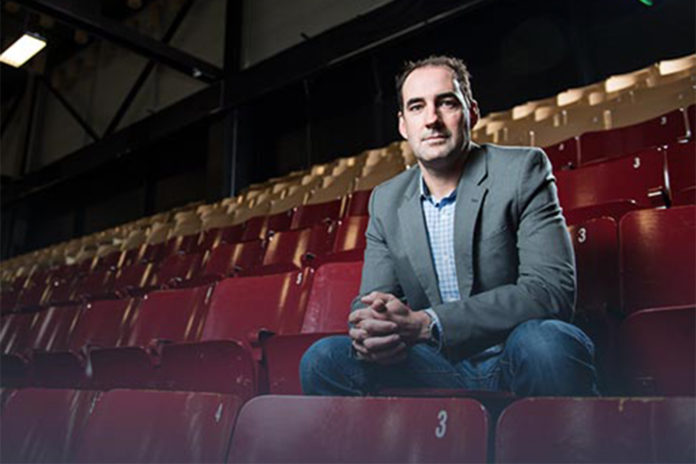
Despite staying at the University of New Brunswick for his undergraduate degrees, master’s degree, PhD and professorship, Ryan Hamilton has applied his skills and knowledge of sports psychology working with teams like Team Canada and the National Hockey League’s Tampa Bay Lightning.
“I teach psychological skills that are associated with managing stress, fostering confidence, and facilitating sleep and focus,” Hamilton, 42, said. “My work is more in-line with what a strength and conditioning coach would do rather than a clinical psychologist.”
Hamilton helps develop techniques and methods clinicians use to assist athletes navigate a wide range of mental health issues. He said he builds skills that’ll help athletes accomplish their goals and deal with situations in their future.
Hamilton began sports psychology consulting with Fredericton sport teams while completing his Master’s degree in the early 2000s. Since then, he’s watched the field grow to the point in which consultants are a regular fixture of multi-million dollar franchises.
“Whether it’s changes to how nutrition or strength and conditioning is done or helping skating coaches when something is new or nuanced, just to make a case for why somebody should bother to engage with it,” he said.
If a player makes a mistake, whether making an error like Bill Buckner in the World Series, or throwing snowballs like Shaun Ellis, it’ll be a leading story and will possibly impact future performance. Hamilton said failing is bound to happen but players must deal with it in a healthy, productive way.
“There’s a microscope on your failures and your successes are very public. You need to have skills and strategies to deal with both in order to continue having success,” he said.
“Here’s the thing, if you’re a professional hockey player and you have the worst possible game, you’re still probably getting paid about eight grand for that day at the rink.”
Many non-professionals deal with the financial burden of their sports, while professionals may have sponsorships and comfortable contracts.
“I know an athlete in her 30s trying to qualify for the Olympics. She put her whole life on hold to pursue her sporting dream,” he said. “You can see how there would be a different set of circumstances around this athlete if things go poorly.”
Hamilton believes that teammates discussing their problems leads to trusting one another, which improves performance.
“People who are performing at the highest levels have a lot at stake and maybe they have more of a need to develop skills around pressure and expectation, than a general person walking around campus on a regular day,” he explained.
“Athletes are as likely to struggle as non-athletes and the issues they deal with aren’t all that different between sports. There’s an instant bond that lends itself to support,” he said. “When it comes down to it, teams are supportive groups.”
